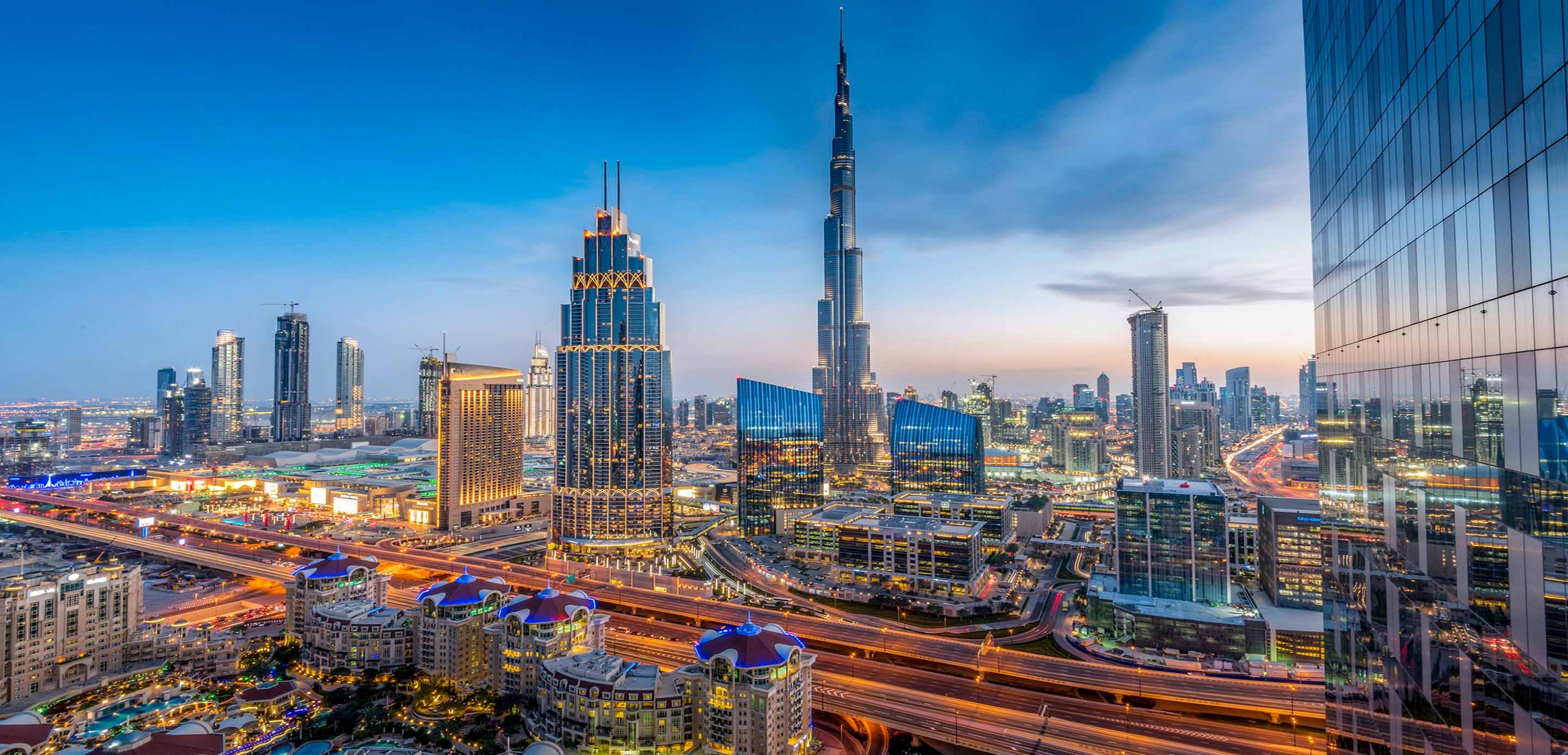- Article

- Market & Regulatory Insights
- Accessing emerging markets
New opportunities in the UAE
Alongside traditional growth drivers – such as oil and real estate – the UAE is benefitting from the growth of new areas like ecommerce, highlighting how the Middle East could develop in the future.
The United Arab Emirates is on the rebound. After a 6.1% contraction in GDP last year, the local economy looks set to expand in 2021. The oil market is recovering, while a successful vaccine rollout means that border restrictions can ease, allowing travellers to once again visit Dubai for both business and tourism.
Furthermore, the UAE’s recent reforms in residency rules and the positive impact of Expo 2020, Dubai’s recovery is cementing its position as a global and regional business hub.
Reacting to the crisis
The recent crisis provides an opportunity to reflect on how businesses should operate to be more resilient, and how good governance can help cities and governments adjust to the needs of a fast-changing world.
“What I learned is that we should build our organisations on the realistic view that this is a world that continues to change,” said Mohamed Al Abbar, one of the UAE’s most successful entrepreneurs, who was speaking on the future of Dubai during a session at HSBC’s 2021 Global Emerging Markets Forum.
The property market is a traditional driver of the Dubai economy, contributing 7.2% to the country’s growth in 20191. As Founder and Managing Director of Emaar Properties, a multinational real estate development company, Mr. Al Abbar has first-hand experience of the strong rebound in property sales. In the third quarter of 2021, Emaar reported its highest ever quarterly sales, with a five-times increase on the same period in the year before.
Ecommerce - the new frontier
In addition to the success in his long-standing property business, Mr. Al Abbar was keen to discuss developments in his more recent venture, Noon.com – the Middle East’s home-grown online shopping platform. The region offers a fast-growing market for ecommerce, with revenues currently around USD24 billion, compared to just USD5 billion in 20152.
“With around 400 million people living in the Arab world, there are huge opportunities for ecommerce platforms that can serve regional needs,” he said. “We’re just at the beginning. The challenge is scaling up. As the business doubles in size every year, it needs more warehouses, staff, and logistical support.”
The next challenge that needs to be addressed, he said, is 20-minute delivery, which will require a shift from big logistic centres to smaller distribution centres in local neighbourhoods.
The potential for ecommerce in the Middle East highlights how a tech-savvy young population could develop a new entrepreneurial culture. Mr. Al Abbar expressed optimism that the bureaucracy and boundaries that hindered small and medium-sized enterprises could be less of an issue in a more interconnected world.
“These kids are educated, and they see what’s going on in the world,” he said. “The amount of knowledge they are exposed to during the day and the way you can do business anywhere you want, this will have an effect on the economy of the region.”
With business investments in many Arab countries, especially in Egypt, Mr. Al Abbar sees opportunities for regional collaboration despite the global economic turbulences. However, flexibility and open-mindedness are crucial to making effective change – especially when it comes to how the world’s most global cities are managed.
“In all cities, good governance will be key. The world is changing quickly, and administrations need to keep up by having an open mind and making swift decisions,” he said.
Key takeaways:
1. COVID recovery
When the pandemic hit Dubai, there was a lot of uncertainty and concerns about cash flows. The government put in place a one-month lockdown, which was followed by a steady reopening. The economy started a strong recovery, with hospitality, retail and ecommerce now all doing well.
2. Outlook for ecommerce
With around 400 million people living in the Arab world, there are huge opportunities for ecommerce platforms that can serve regional needs. With only 2% of total retail completed online, the Middle East is behind markets where ecommerce is more established. This creates enormous room for platforms to grow. The challenge is scaling up – as a business doubles in size every year, it needs more warehouses, staff, and logistical support.
3. The digital future
Technology has the potential to change the Middle East, especially in the field of entrepreneurship. The region has been hindered by boundaries between countries that are less relevant nowadays due to digital connectivity, while education will benefit as younger people are exposed to enormous amounts of information. FinTech is one area where there is strong potential.
4. Dubai Expo
This major event opened at the right time, just as the world started to open up from the pandemic. This makes it a celebration of the world starting to return to normal. The Expo solidifies the reputation of Dubai, highlighting its infrastructure, and its ability to host landmark international events.
5. Success in the future
In all cities, good governance will be key. The world is changing quickly, and administrations need to keep up by having an open mind and being able to make swift decisions. Furthermore, the demands of young people are changing, and it will be important to address their interests in technology and sustainability.
This material does not constitute Investment Research. It has not been prepared by HSBC’s Research Department. This material represents the best estimates or approximation as at the time of compilation and is not a recommendation. Investors must make their own determination and investment decisions.
Accessing Emerging Markets
Visit our Accessing Emerging Markets homepage for more insights and how HSBC can support you.



